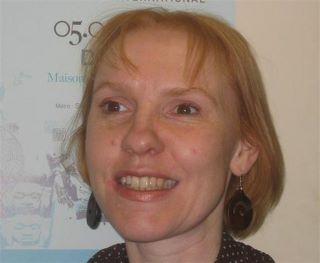 Member Login
Member Login

“Grammar for healthcare can be colourful… and ever so slightly fuzzy… in my humble opinion…”
(Ros Wright)
In the webinar, Creating Fuzziness: Filing the accuracy gap in English for healthcare, Ros explained why accuracy matters at any proficiency level and how teachers can present grammar in a more appealing way than ‘out of the context’ individual sentences. But more than giving tips on classroom activities, she focused on raising awareness of the need to fill the accuracy gap in medical language courses. Citing Swan (2012), she believes and shows that ‘grammar doesn´t have to be grey’.
Using fuzzy language, especially by non-native English-speaking healthcare professionals working in English-speaking countries, is a skill that is limited by their native culture and language. Thus, it needs to be taught and trained in a medical English course or classroom.
To find out teachers´ attitudes towards teaching grammar, i. e. when and why they explain grammar, what the most common grammar structures the students need/want to practice are, and how they teach it, she surveyed Medical English trainers at Specialist Language Courses (SLC).
Ros talked about herself as a big fan of using videos. She likes using them to motivate and engage her students and to show model situations which might help them one day to choose the most appropriate language. She showed a short video sequence which demonstrates the use of fuzzy language in a clinical practice. She also gave an example of one of her learners, a doctor who, during a role-play assessment delivering bad news, said: I´m afraid that there is a risk that there might be… What a great example of fuzziness!
To make the webinar interactive, she asked the participants to say which grammar structures they would teach B2-C1 level learners or in what kind of scenarios a doctor would need to use more tentative language in communication with patients and their relatives. At the end of the webinar, the participants asked about her opinion, for example, on the impact of cultural background and mother tongue on overseas doctors when using fuzziness.
Watch the webinar to find out the answers to the following issues:
To learn more about this topic, you can read a research summary in the Blog section, which includes the paper by John Skelton recommended by Ros.